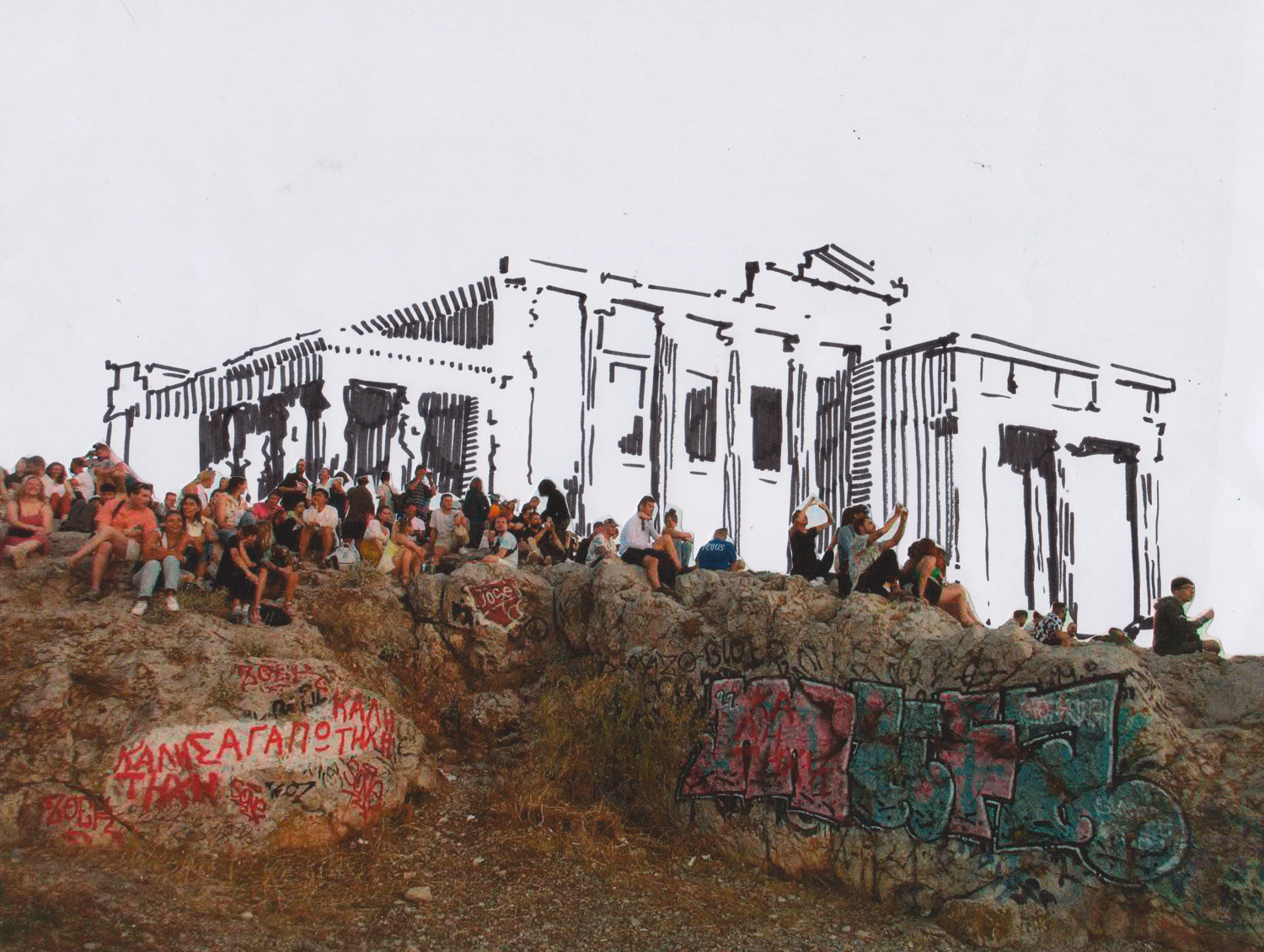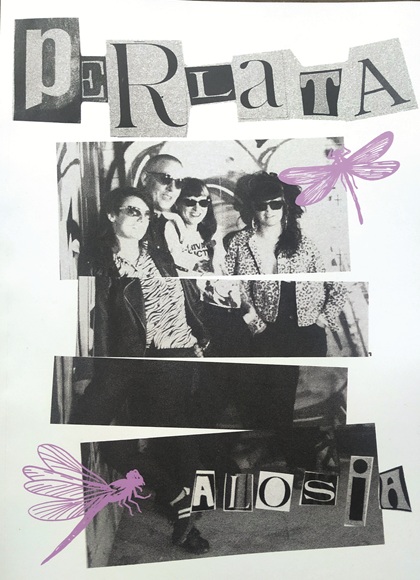"Every library must be the cultural core of the inhabitants of the place where it is located"
- Gabriel García Márquez of Barcelona, led by Neus Castellano, received last year the award for the best public library in the world. It highlights the importance of the creation of “ecosystem” spaces, closely related to the design and architecture of every library and space. But beyond that, it has focused on the exchange between users and service. Ferran Burgillos is the manager of the Library Consortium of Barcelona. The consortium brings together 40 libraries and from a more general perspective talks about the planning and strategy of the entire network. You've been in Bilbao for the first time talking about libraries.

They have attended the congress organized by ALDEE (Basque Archives Association, Libraries, Documentation Centres) in Bilbao. The Presentation Form states: “Good design is fundamental in the management of the library.” Where do we start? What do you propose?
Castellano Neus: The library must be a hybrid, shared place. I mean, it's not your home or your workplace.
Also a place of stay, among many other things.
Spanish: Yes, and that's bound to think collectively. We're getting more and more into it.
More informal designs predominate. The library you manage, for example.
Spanish: It is clear that steels have to give it another less serious tone: put pufs, sofas, hammocks... We have done so. Shelves below normal to have a wider view of space, open doors in general... We call it “creating ecosystem spaces.” To be able to do several actions at the same time, in different places. It is also important to place them in such a way that some of the rooms that usually remain hidden in some places can be made visible.
There is still a rigid mentality, which libraries should be a true field of silence.
Ferran Burguillos: Of course, these fields are also necessary. Notice, in the TAV of Spain you are forced to pay to ensure silence on the wagon. I do not believe, however, that the whole library has to be a space of silence, not most of it. There can be reading corners, places where you can be reading quietly at the informal spots, especially exercises that don't require much attention.
What is the library or what should it be? How do you understand it?
Bourgeois: A public library, to me, is a socially dependent infrastructure. This is what sociologist Eric Klinenberg said in his book "Palaces for the people." On the one hand, it is a public service, a shared space that is offered directly to society, in which people participate actively or passively. On the other hand, the library can serve to meet needs or to face social challenges: promoting equality, facing loneliness, exchanging, reflecting collectively... All of this, of course, by promoting knowledge and culture. The capitalist system that we live in is increasingly less likely to think, to be, to relate and to share. The library is a resource to deal with all of this.
Spanish: I've been working in libraries for 22 years, and I look at the evolution that I've met firsthand. The libraries that we had ten years ago are not the same as today, and the libraries that we will open in five years' time will not be the same as today. We're introducing layers to the library model. More services are created because people’s informative and training needs change. We offer more digital services, we're adapted to the time, and that's obvious in people's participation. Libraries aren't just lending books, we're not so static in that sense.
Bourgeois: We always say that we would like, or that the goal is for people to come in one by one in the library and out of it ten by ten. In other words, after several training sessions, reading groups, etc., multiple contacts are made with people.
CASTELLANO NEUS: “We are adapted to the time and in people’s participation is evident”
I suppose, and as you come from Barcelona with examples, that libraries are not going to be the same in Raval, in Sants or in the higher-income neighborhood.
Burgillos: The postcode makes a difference and a lot. That is obvious. But not because of the library's services. Depending on the place of residence, personal resources influence access to the library. People don't relate to each other in the same way, because the situation in each house is quite different.
All the libraries in our network have a single vision and ambition. You can find almost the same services in one case or another, in terms of book cataloguing, in promoting reading or in digital documents. Then, yes, every library has its own project. Every library in Barcelona specialises in science, geography and travel, feminism... In the case of the Gabriel García Márquez library, Latin American literature is the axis.
Spanish: It should be noted that the García Márquez library is located in the district of Sant Martí [Barcelona to the Northwest], in the neighborhood of Verneda, and that the Latin American community has a lot of strength. This is a working neighborhood that has historically experienced many migratory waves, especially large buildings were built in the years 1960-70, there is little space in the neighborhood for so many people... For the neighbours, after so many petitions, it was urgent to have such a library. They also experience it with pride. It is known as the Guggenheim de Verneda in the neighborhood. The other day, I was asked to remove the trees that are out to better see the library from home. Of course, I told you no, those trees do their job!
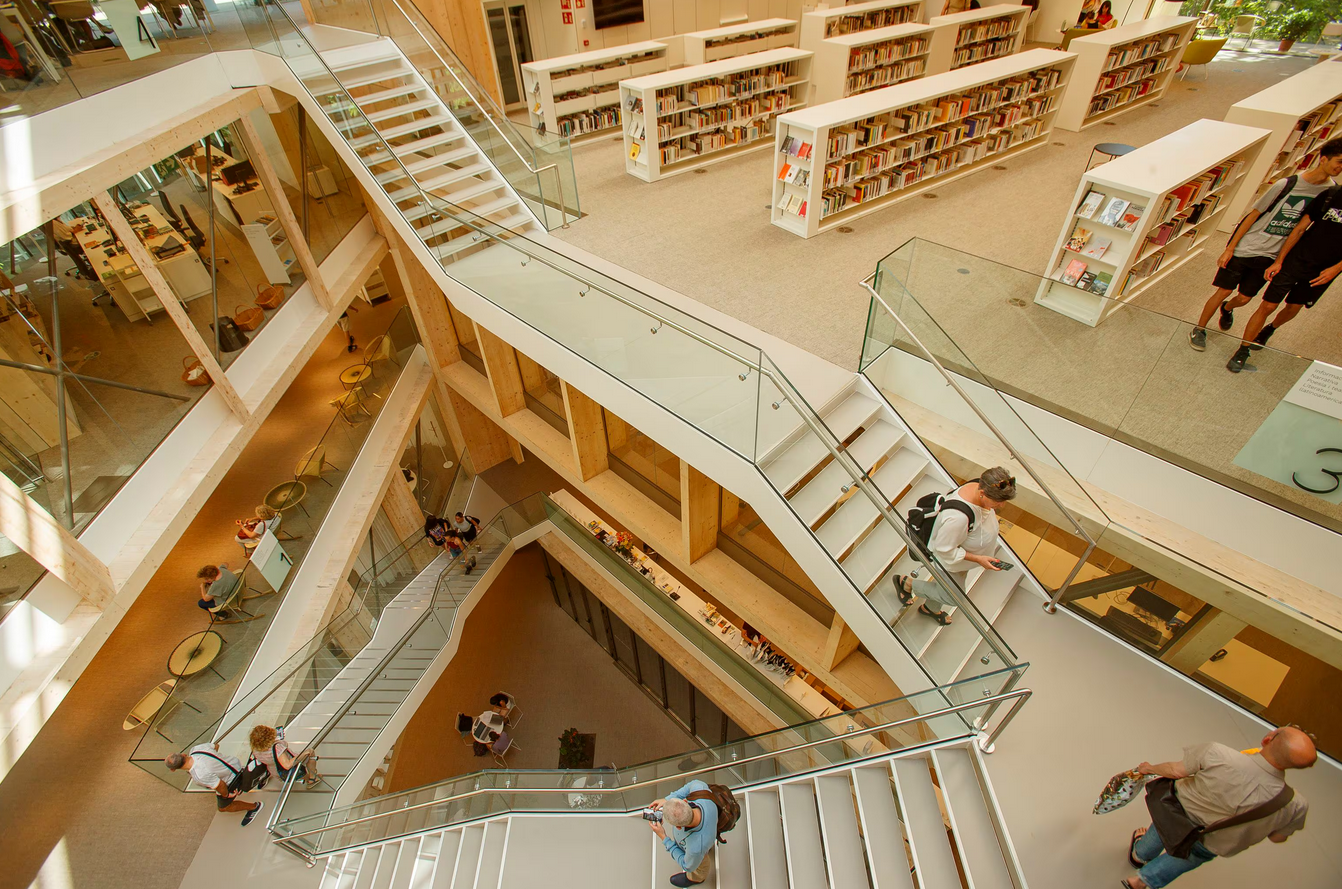
Gabriel García Márquez was awarded last year the prize for the best public library in the world. In order to get there, where have you searched the referents?
Spanish: For years we have visited Nordic libraries, and one of them, the one that surprised us most, was radio. It worked very well, but we didn't see it clear that it could work in our society. However, we have seen that yes. Ràdio Maconda is fed by many people and has entered the community network of radio stations in Barcelona. Now, year and a half, it's radio with more podcasts, about 150. The Latin American community has many podcasts, and we're also working with the educational community, high school and high school youth. They are taught, albeit briefly, to make scripts, search and test information, to have a network of sources, to learn voiceover... It serves to tell local stories and explore the history of the neighborhood and the city. It was born as a library project, now it's a community project.
Bourgeois: Because creation, rather than individual, is collective. That's the key. The importance of creating shared spaces is there. The system and society lead us to an individualistic activity, and the library should contribute to its elimination through the collaborative use of technology, the creation of corners of thought, decision-making, action and execution in general. Otherwise, society will fall asleep.
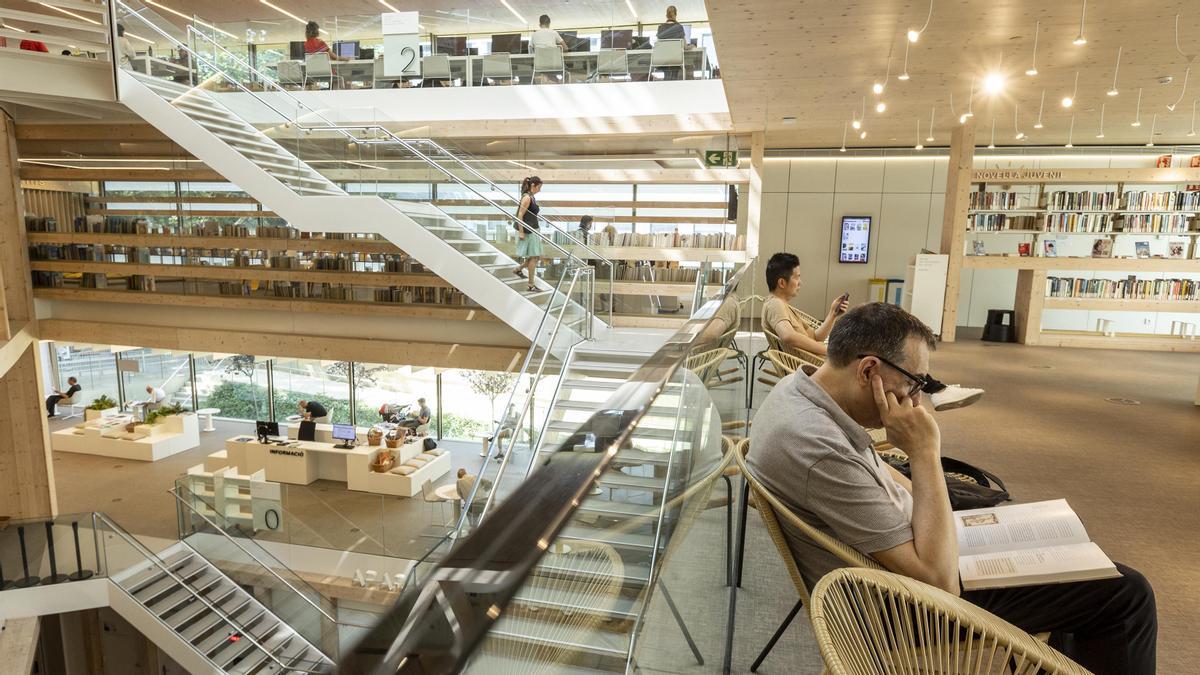
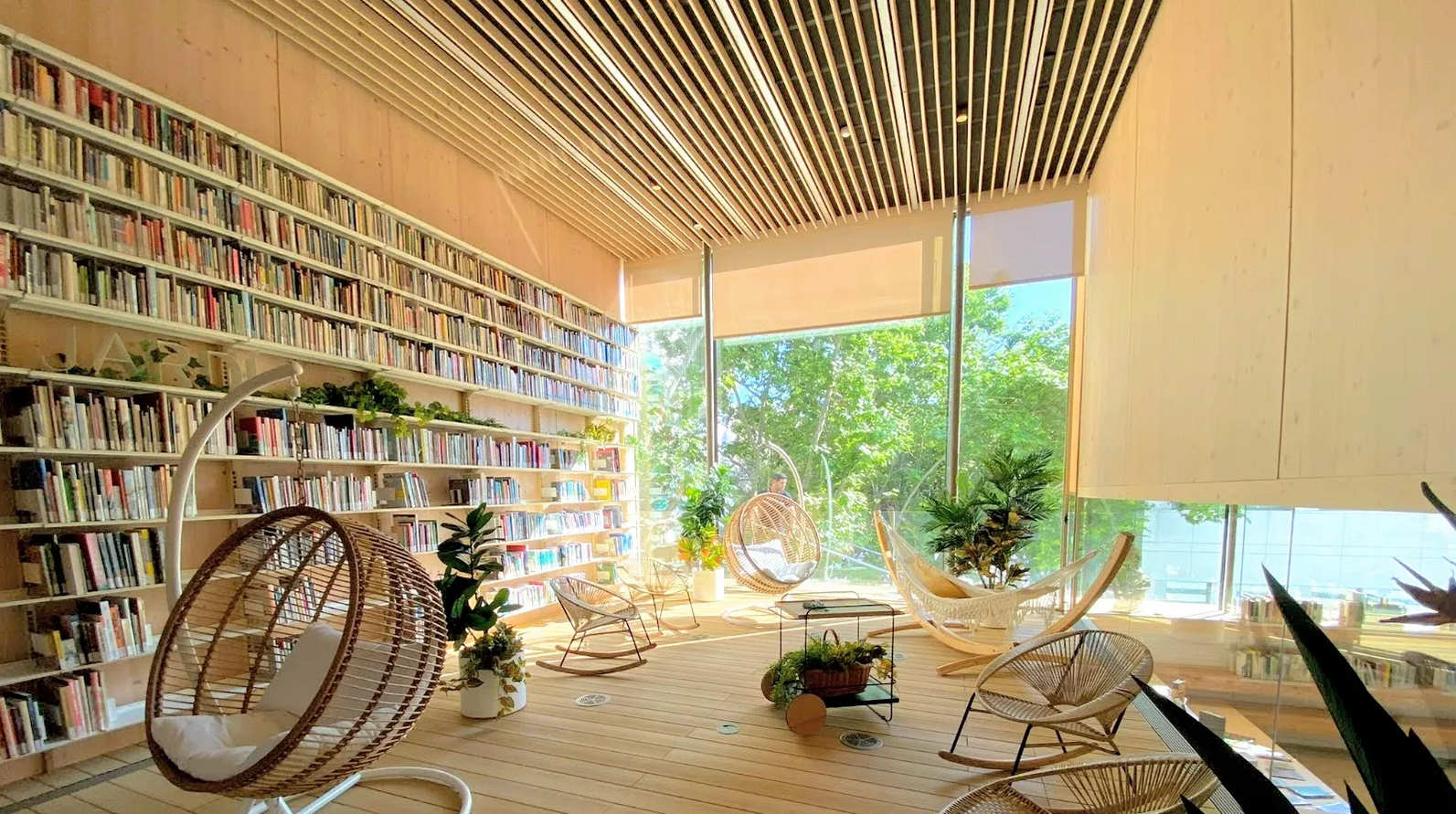
They say that the challenge for libraries is to increase layers, adapt them to society. Looking to the future, in the Library Consortium of Barcelona, what are the paths to open that have been identified?
Bourgeois: We must make library users more and more participative. The library must have a space that is the property of the citizens. That is the purpose. Then there are great challenges for digital transformation in general.
After the pandemic, we have once again begun to recover the reputation and rhythm that we had before, at least in Barcelona, and we must continue to delve into it, in the field of literature, in philosophical and scientific dissemination. And the key, of course, is to have an interesting poster. This is what works especially in the reading groups.
Spanish: That's it. We have talked about radio, but no one thinks that the reading groups have been rejected. Its weight is enormous. And the passion for reading is growing. Physical book loans, if I am not mistaken, have risen between 2022 and 2023 by about 13 percent.
In Hego Euskal Herria it has also grown, exceeding the figures before the pandemic.
Bourgeois: In Barcelona we have also exceeded the figures before the pandemic, although the number of visitors is still around. This means that you read more. I think it was the pandemic that set the turning point and that people have felt the need to make readings collectively.
You have a radio in García Márquez, the building has several floors, many spaces... This type of project necessarily requires a great deal of financial commitment. I mean, a lot of public money.
Spanish: First you have to seduce the politicians... We, in Barcelona, when we created the network and presented the projects, had doubts. You sell the idea to a politician, that has to convince his team and then the entire municipal government. But look, I think that in recent years, in Barcelona, political parties have only agreed on issues relating to libraries.
Bourgeois: The Barcelona model was developed with political consensus. The first strategic plan was drawn up in 1998, and it was clear that it was about strengthening the territorial network of libraries. At that time, Barcelona had only 18 libraries. Some of them, in addition, were at the top of some stairs, in the attic of a public building, filled with books that seemed obsolete dispatches. There has been significant structural change. In order to do this, a political commitment is essential, and a consensus is needed to strengthen it economically. Now, as Neus has said, it is clear to all political parties that this model of libraries works, and many neighbourhood associations are calling for more libraries. Barcelona has 73 neighborhoods and each neighborhood wants a library, but it is impossible. We have a plan, yes, to ensure that within 15 minutes of the place of residence there is a library on foot.
In cities, it will be easier to open fragments of this kind of libraries.
Bourgeois: Every library must be the cultural nucleus of the inhabitants of the place where it is located. Also in the smallest town. In the province of Barcelona there are small municipalities that are obliged by law to have a library in which, although with few resources, they are important points for citizenship.
.jpg)
FERRAN BURGUILLOS “We must make users more involved”
They come to visit the Muskiz library. How did you see it?
Spanish: It's a classic library, with lots of books, but I think it has a lot of projects with the educational community. Now, in addition, they had a workshop with the elderly to work on historical memory and had a training on plants.
What I mean is that it is important to be clear about the library model and that the library is disseminated in the life of the neighborhood or village. From there is planning and programming.
Bourgeois: You can also do things with few resources. Minor interventions but with possible incidence. Think about how you have the library organized. Is it full of books? Do they all lend themselves? Or are there some that are no longer in the public interest and that have become obsolete? So, you can cast, shrink the shelves, gain space and make the space more attractive, giving you a new use. And the participation of people can be interesting in this process. Ask young people how they would imagine, what offer they would like to receive. Maybe more informal... It can be a way to start.
They still have to continue there.
Bourgeois: Libraries must, of course, maintain their essence, otherwise they would become civic centers or something like that. Basically, however, it must have mentioned it: culture. More and more people see it clearer that culture and education are key areas for social transformation.
The organization of such a congress implies the existence of a desire for transformation.
Bourgeois: Let's see if politicians come to Congress! [They both laugh.] It's a good starting point, yes. But here you are not at the starting point. There are good experiences, interesting, local projects, from which we will also learn.
AMAK
Company: Txalo teatroa.
Created by:Elena Díaz.
Address: Begoña Bilbao.
Actors: Finally, Ibon Gaztañazpi will account for the details of Intza Alkain, Tania Fornieles, Oihana Maritorena and IRAITZ Lizarraga.
When: 10 January.
Where: Auditorio Itsas Etxea... [+]
Adania
Shibli
Translation: Aitor Blanco Leoz
Igela, 2024
----------------------------------------------
During these days, an Israeli soldier is bombarding hospitals, schools, Palestinian refugee camps with drones as if it were a video game, while in the West we see on... [+]
Basque Country Herriko Gazte Orkestra. Winter Meeting
Director: Iker Sánchez.
Narrator: Kepa Errasti.
Programme: Works by Britt and Beethoven.
Place: Victoria Eugenia Theatre, Donostia.
Day: 2 January.
-----------------------------------------------
After 27 years, we... [+]
Chulería, fuck!
WHEN: 5 January.
WHERE: At the Kafe Antzokia in Bilbao.
----------------------------------------------------
As I filled the room, looking down behind the railing above the theater, I've been playing to see if I find someone younger than me before the... [+]
Beyoncé at the break of an American football game in Houston, Texas. The American singer has come to the center of the stadium in a cowboy suit that she's had access to. The hat covers the nice, the legs the boots long to the knees. The scarce white suit shows her thighs and... [+]
The New Year’s Morning is the title of a roundness created by Joxe Ansorena, brother of our grandfather Isidro, for the Txistularis to hit the streets during the New Year’s Morning. In the air of that melody, we were picking up the wrecks of the night, like the garbage... [+]
Basabürüako ibar eskuineko gazteek lehen maskarada arrakastatsua eman dute igandean, Lakarrin.
Winter has always happened to me melancholy. It was time to look out the window and remember. An ineluctable bureaucracy between autumn and spring, painting back blank on a vertical parcel to reflect whatever you want. It's not just my business, those who forget that the snow is... [+]
Alosia
Perlata
Autoproduction, 2024
----------------------------------------------------
The Arrasate Perlata group has published a new work. He has several records behind him and his latest work is punk, Oi! And it was a documentary in tribute to the unrepeatable... [+]







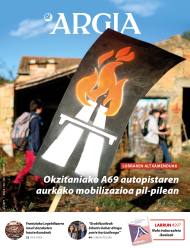

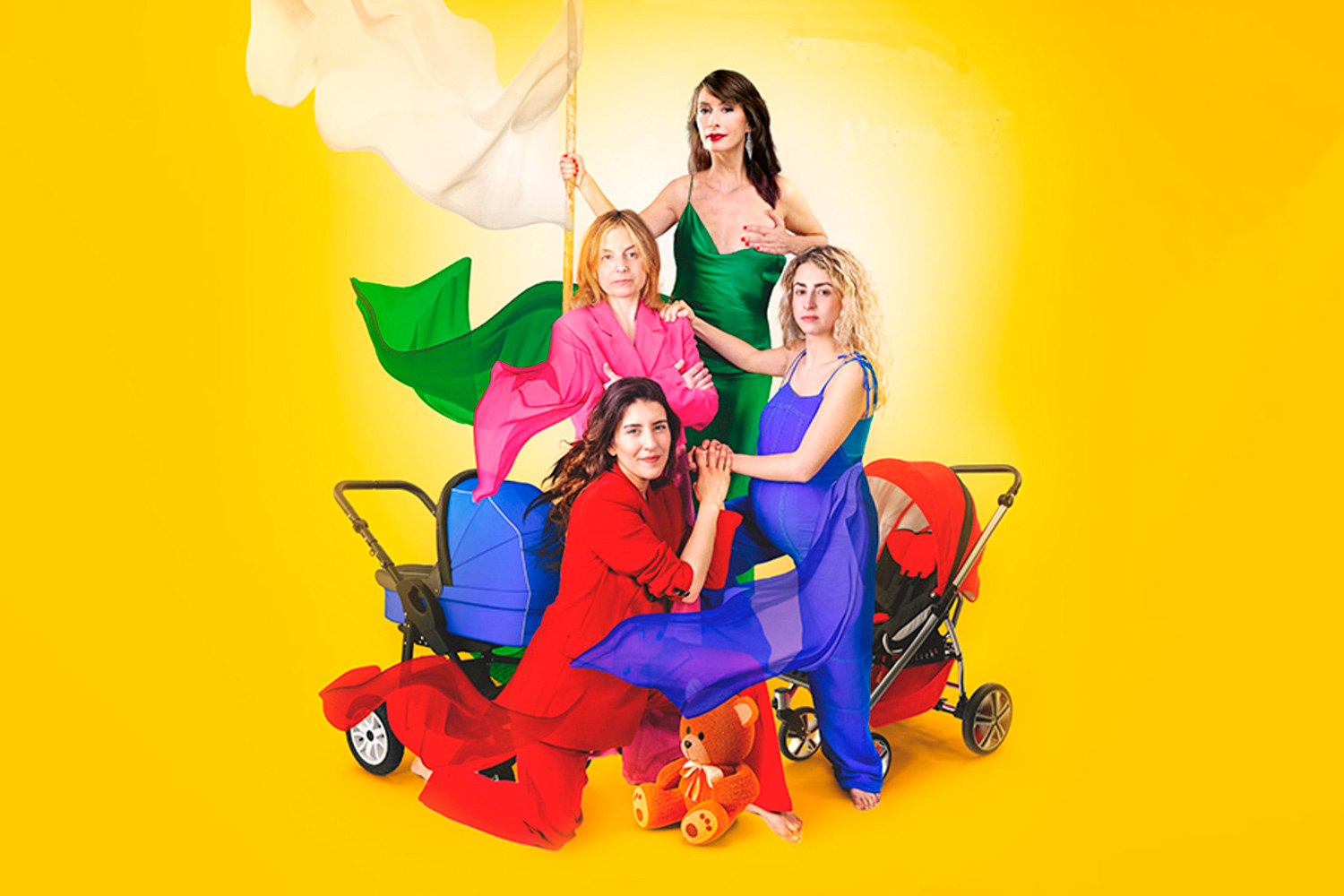

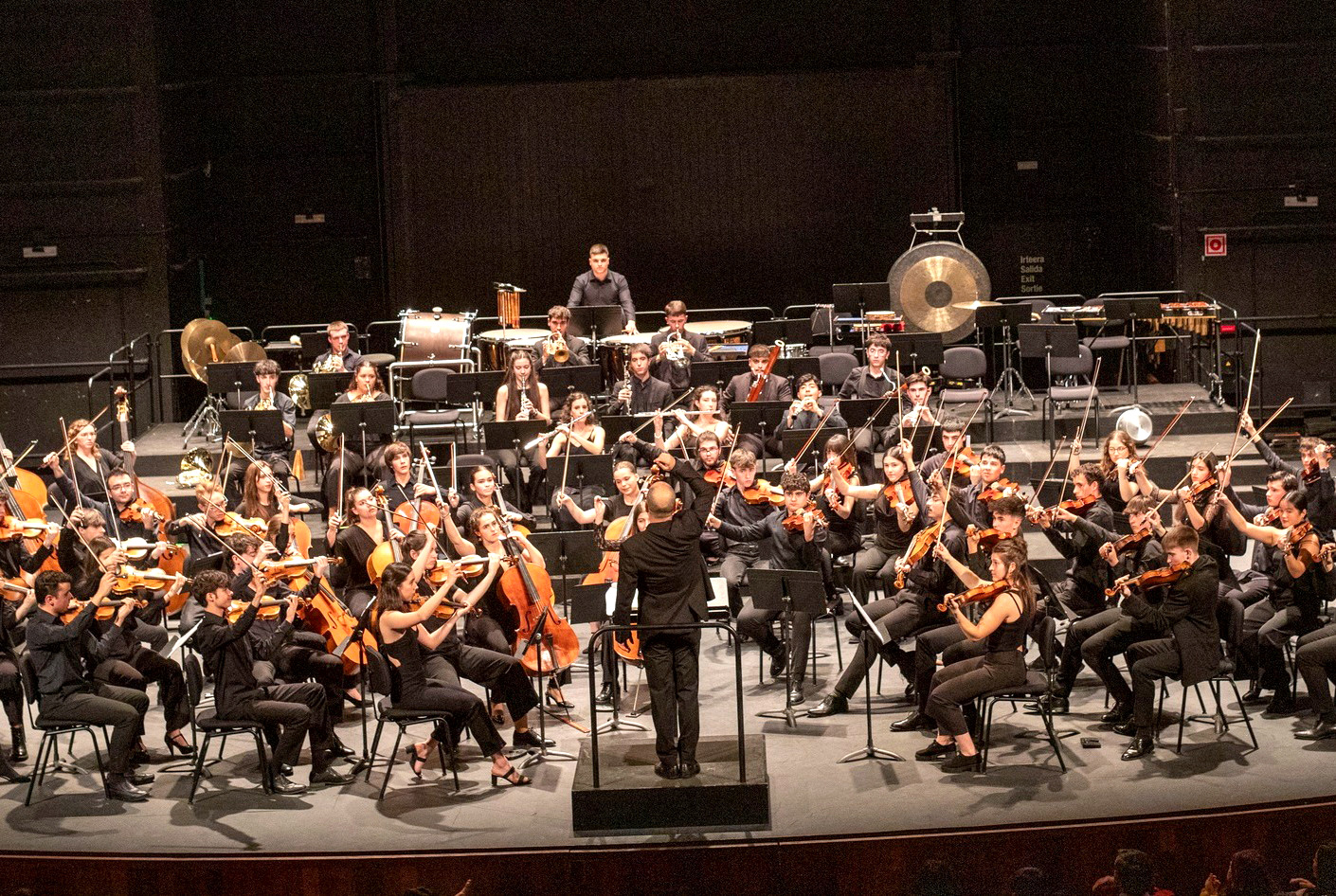
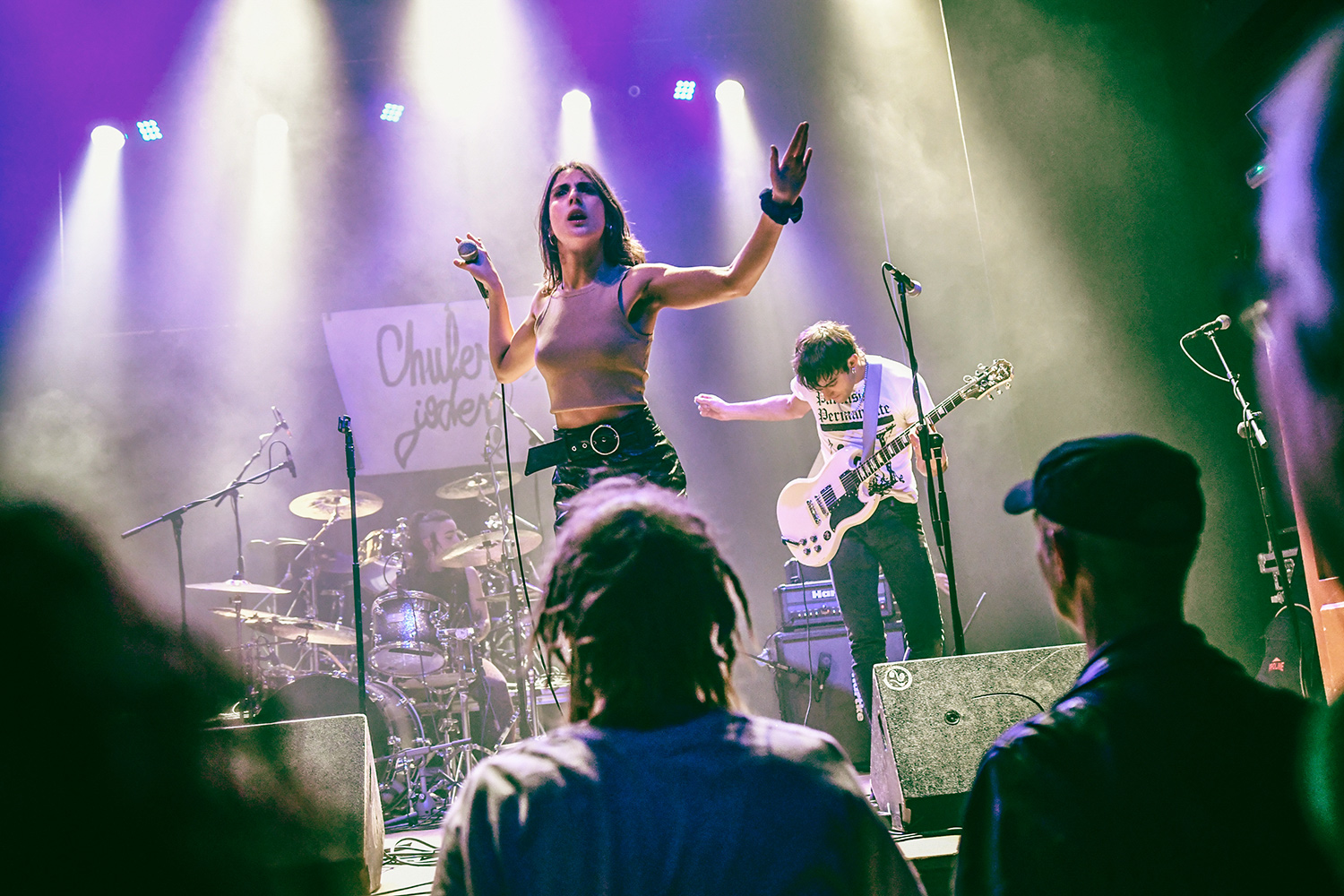

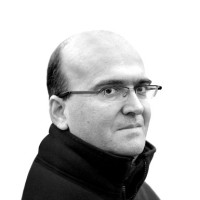


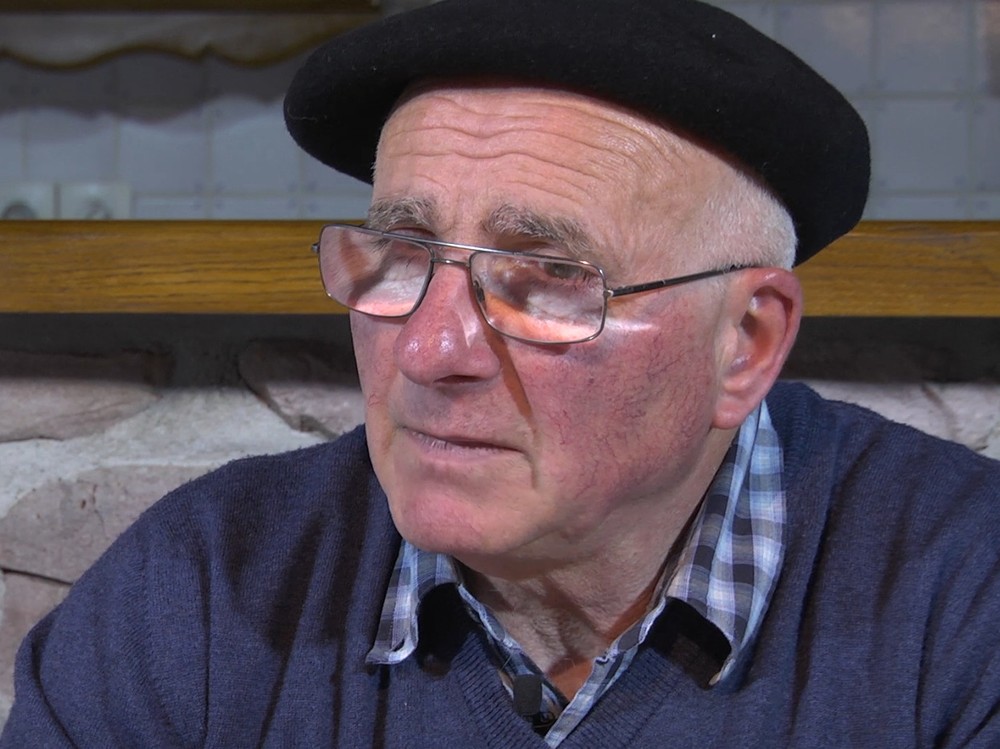
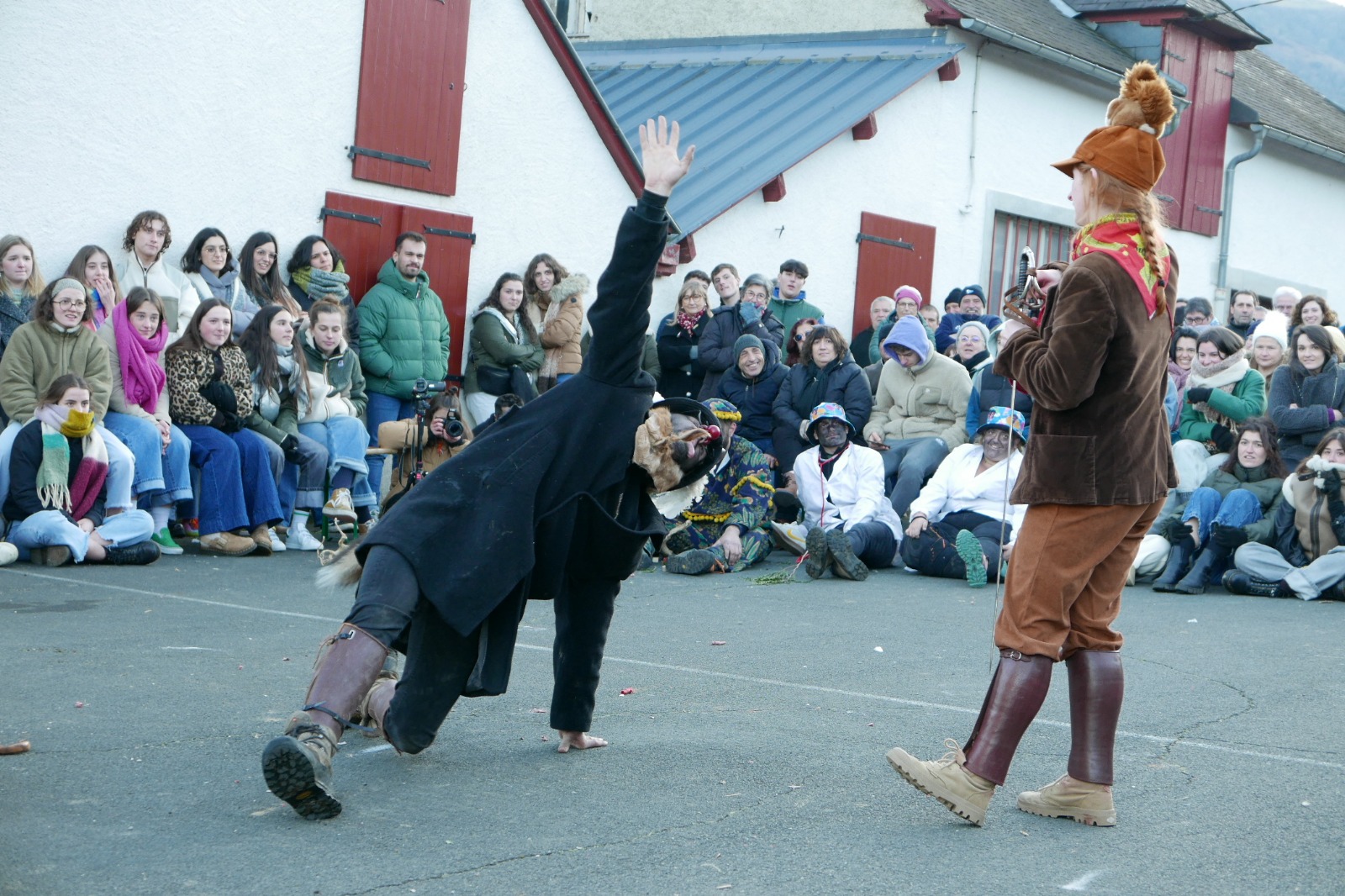
.jpg)


